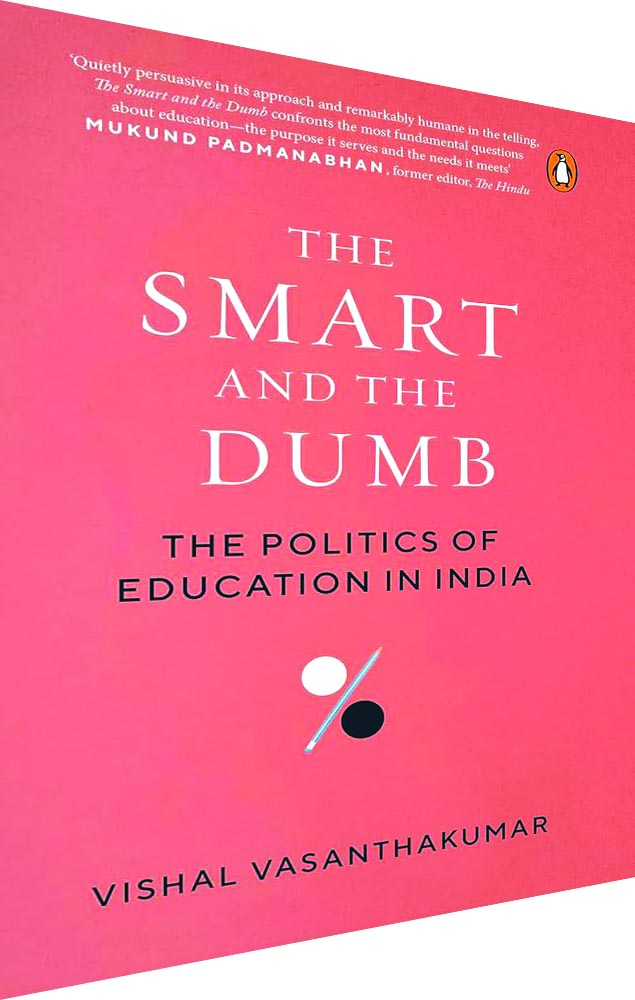 The smart and the dumb: The politics of education in India
The smart and the dumb: The politics of education in India
Vishal Vasanthakumar
Penguin Random House
Rs.599 Pages 179
Through seven broad stories, the author provides a vivid portrait of cultural and political processes that shape formal education and demonstrates how education affects these processes
What is, or should be, the purpose of formal education? What are some of the salient effects of formal education in a social context characterised by deep cultural diversity and class differences? What are some of the ways through which formal education can undermine social hierarchies?
These are among the important issues this book seeks to address, drawing upon the author’s extensive travels to a large number of education institutions across India. Abundant research exists in the field of the sociology of education. But the politics of education is an under-researched area.
In the introduction, Vasanthakumar alludes to the dreams and aspirations of millions of parents who enrol their children in schools of all shapes, sizes and price points. Their major aspiration is that with educational experience, their children will move upward socially and bag well-paid jobs. Therefore, education is sound investment for making their children employable in the future. For the author, in the contemporary globalised context, education is linked to the demands of economic competition. This often results in sustaining hierarchies based on the quality of education one receives. Based on his observations of the contemporary Indian social context gained through his travels countrywide, the author attempts to analyse what this means in terms of class, caste and gender.
The book comprises seven chapters, each based on seven broad stories or themes seeking to understand how formal education is dispensed at empirical level. The characters in these stories are diverse in terms of social, cultural, economic and geographic location.
There’s a girl in a distant village married off at young age; children in a context defined by considerable ethnic diversity and conflict; the mother of a child affected by ADHD (attention deficit hyperactivity disorder); students enrolled in entrance exam coaching institutes and children studying in elite schools in a large city.
These actors participate in a series of cultural events that reinforce social hierarchies and produce valuable cultural capital. Reflecting on these characters and some of their education experiences, the author raises important questions relating to the impact of formal education upon issues such as empowerment, social equality and ‘success’. Through these stories, he provides a vivid portrait of cultural and political processes that shape formal education and demonstrates how education affects these processes to make the point that education is not provided in a social vacuum and can’t be regarded as a simple process of going to school.
The author acknowledges the pivotal role of education and its beneficial outcomes, including bringing children out of poverty, enabling social mobility and bridging cultural divides. But he also highlights the difference between those who are labeled as ‘smart’ and others considered as not so (reflected in the book’s title). Overall, the book makes the point that education is — or, ought to be — about serving human needs, rather than children being simply shaped for the ‘knowledge economy’ or to secure employment. As such, it suggests the need for rethinking the purpose of education.
The Smart and the Dumb is a welcome addition to the field of the sociology of education, and the rich empirical details it provides makes it particularly useful. That said, the value of the book might have been enhanced with detailed reflection on what education ought to be in light of existential questions such as the purpose of life and what it means to be a good human being, a fulfilled person, and to live life in a truly meaningful way.
Yoginder Sikand























